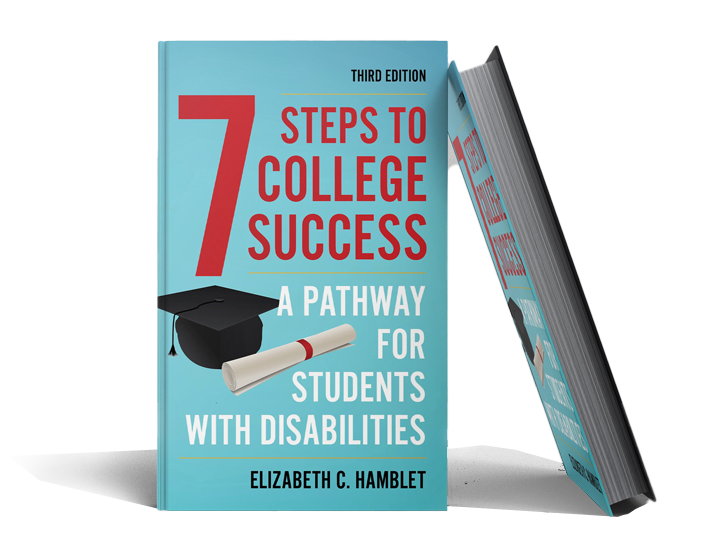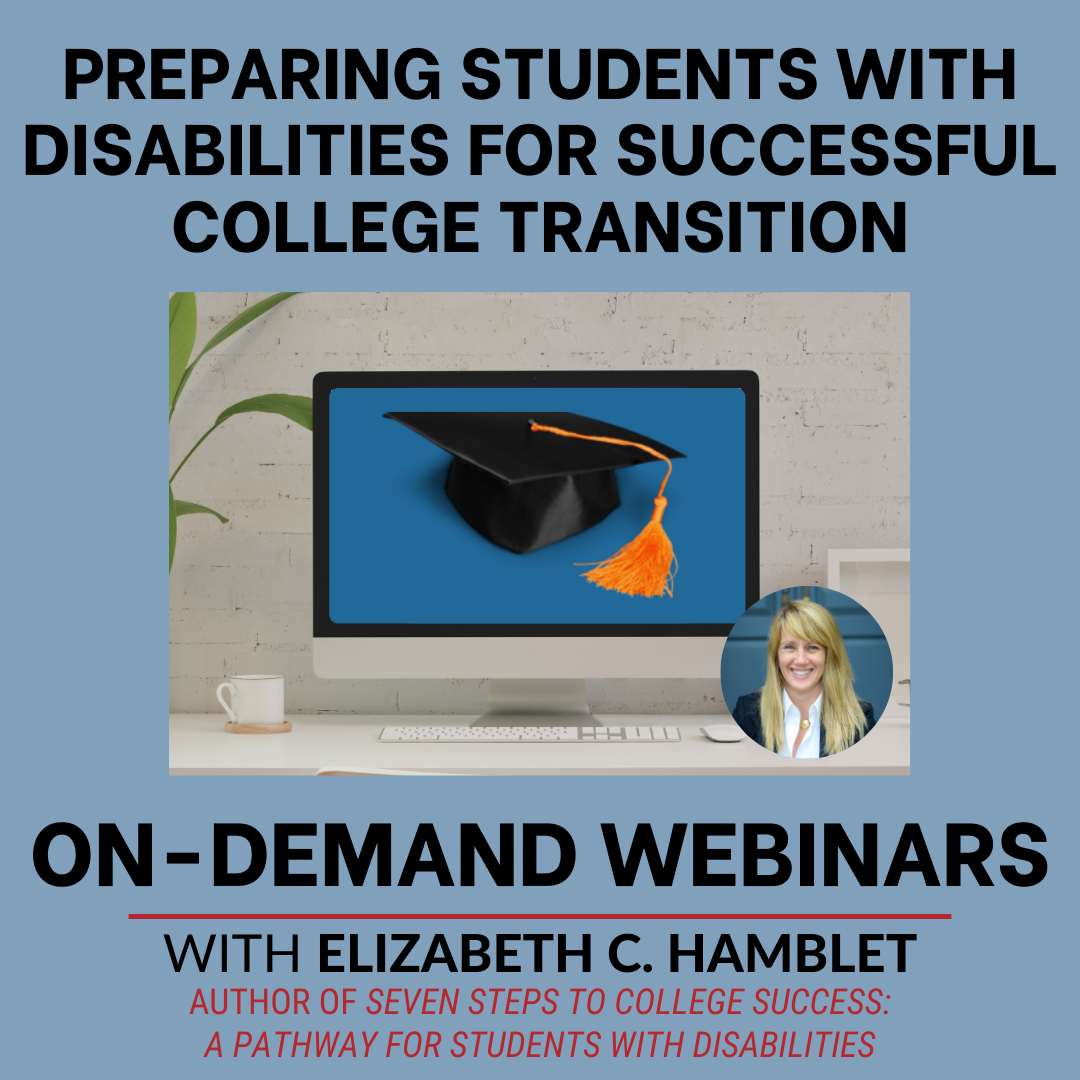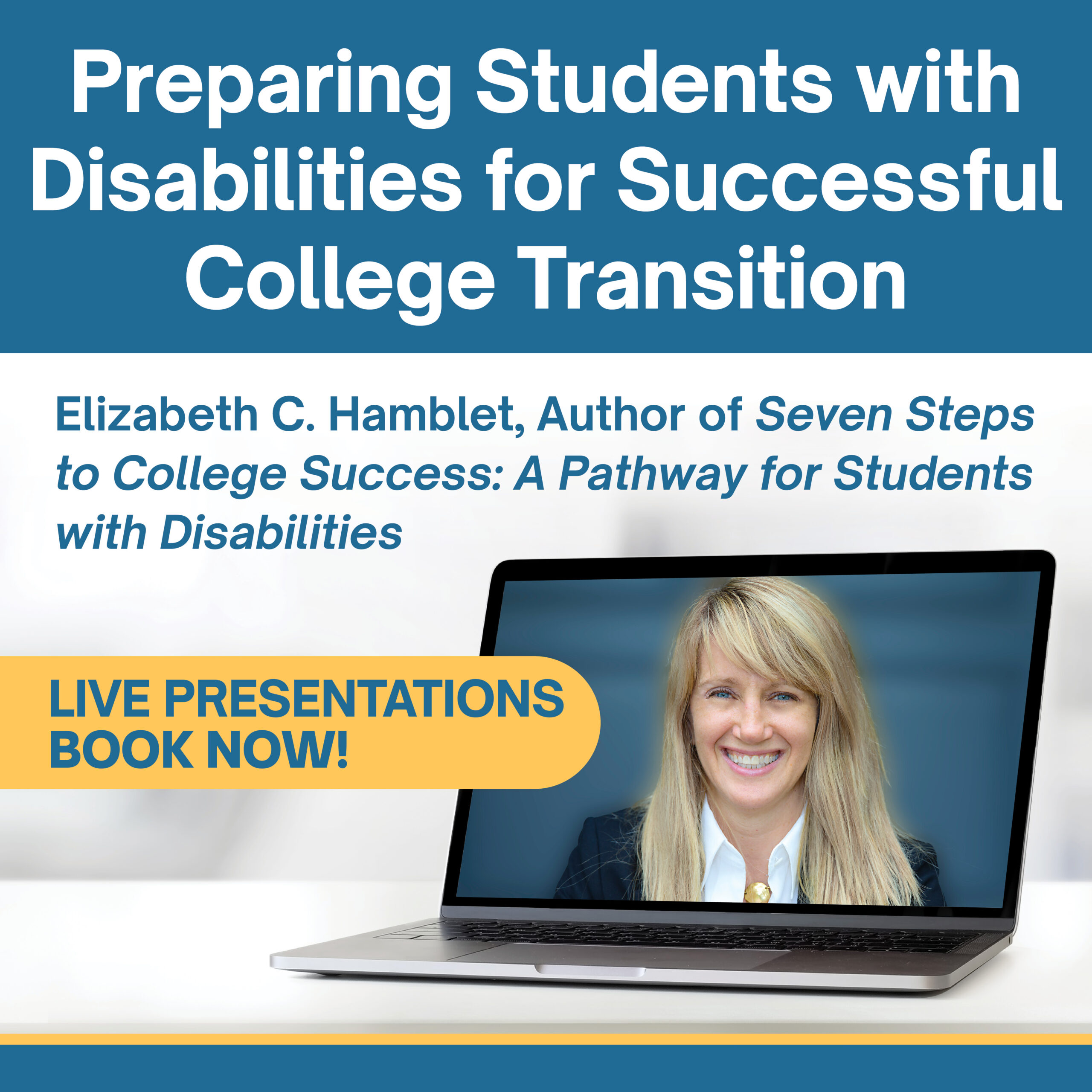Introduction
As I note in my book and other works, the laws in place at the postsecondary level require much less of colleges than they do of K-12 schools. Some colleges provide only the minimum required of them. (See what accommodations are and aren’t commonly granted) Some colleges go beyond that minimum for no additional charge, while others offer additional supports through a coordinated, fee-based program.
As students with disabilities select colleges to add to their list, they can do some investigating to see what each one offers and take notes on this to help them make a decision later, when they receive their acceptances.
What to Know
While they do this research, students should not be concerned if they can’t find any list of accommodations on a college’s disability services (DS) site. It doesn’t mean they don’t offer any (all colleges have to provide at least some basic accommodations), but may simply mean the office wasn’t asked to provide that information on the site or wasn’t given room to provide it.
If students see a very minimal list, that also doesn’t mean that that’s all that’s available (though this may be true). If they want to know if a college provides a specific accommodation, they can contact DS to ask if it’s something they’ve ever provided.
Students should also be aware that even if they see an accommodation they want listed on a DS site, it doesn’t necessarily mean that they themselves will get that particular one. Decisions about accommodations are made on a case-by-case basis.
What If Students Are Only Looking for Basic Accommodations?
Even if they are only interested in the kinds of basic accommodations likely to be available anywhere, students should still spend some time online gathering information during their search. They should definitely check the disability documentation requirements at each college; despite what others may have told them, there’s no single established standard (ex., testing has to be less than three years old. While those with learning disabilities (LD) will likely find requirements to be similar across schools, those with ADHD might find quite a range. But even those with LD may see some variation across schools.What Else Should Students Be Looking At?
What’s also important is to see what supports are provided beyond accommodations. Sometimes, students will find that the disability services office doesn’t provide something they want, but another office or center on campus does.
For example, students may be interested in having another student mentor them. Colleges don’t have to provide this service as disability accommodation, but any student might be able to get a mentor through the Office of Academic Affairs or Center for Academic Support. (It just might not be another student with a disability who could help another navigate particular issues related to their disability.)
Some colleges may offer access to text-to-speech software (such as Read and Write Gold) through their computer system, making it available to anyone with a student login, rather than solely as an accommodation for those approved for it by the disability services office. These are the kinds of things students can learn about by probing colleges’ DS office sites and other offices’ and departments’ pages.
To demonstrate how to do this kind research, I recorded a video showing my review of a university’s disability services site, and of its other support centers. I found some interesting things.
For example, their documentation requirements are much less specific than those of many other colleges. Their disability services office has an assistive technology specialist who can train students to use various programs or apps (this is not widely true of other colleges).
Their general tutoring center does provide mentors and coaches, but they don’t provide (at least as I understood it) subject-area tutoring. This may be a concern to some prospective students. It is at least something they should think about in advance, and use it as a comparison point with other schools if they think it could be important to them when the are in college.
Help for Students Doing this Research
Students (and/or the adults helping them) may want to watch the video mentioned above. In addition to the video demonstrating how to probe a college’s site, I also created a free form to guide students’ research for each college.



